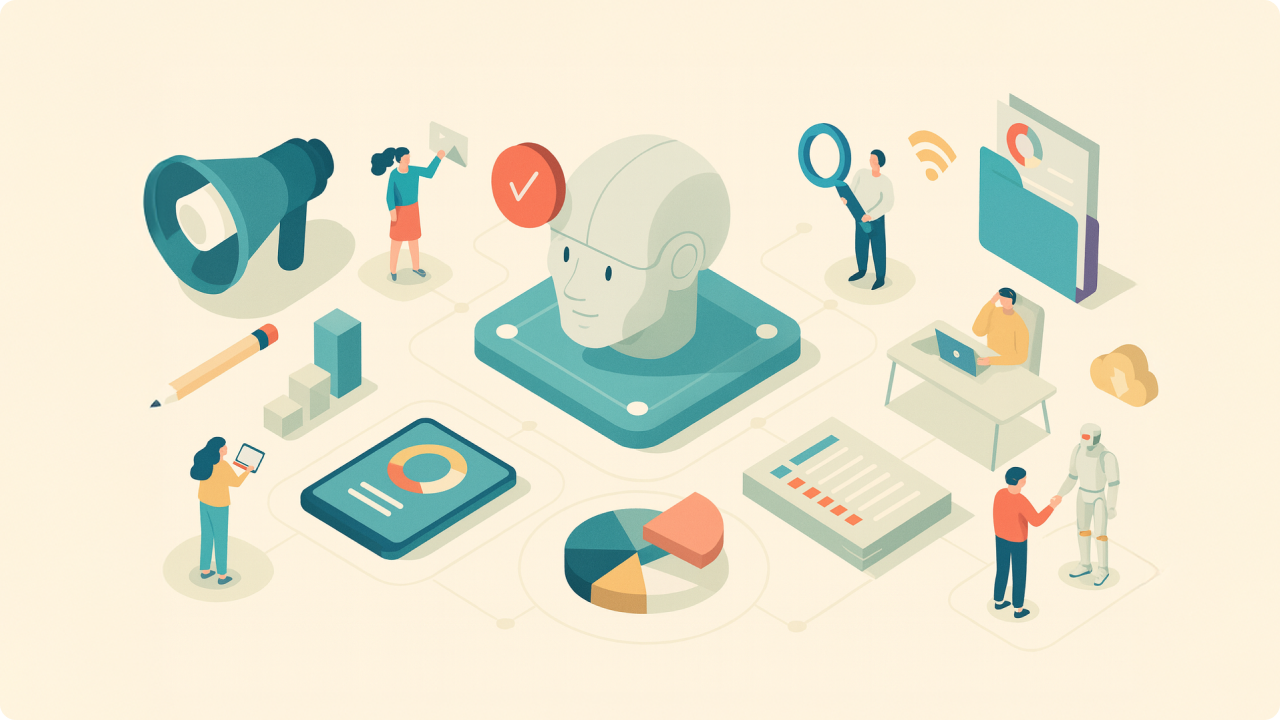
John Paterson
Founder & CEO, Quadshift
5 Predictions on How AI Will Shape the Future of B2B SaaS
Artificial intelligence and natural language processing technologies like ChatGPT and others will have a profound impact on nearly every industry and in many ways, B2B SaaS has the most to gain from the proliferation of AI.
Here are 5 ways AI will impact B2B SaaS:
- Natural language application interfaces will proliferate
- Engineering productivity will dramatically increase
- User experience expectations will rise
- Market leaders or emerging leaders that embrace AI will build on their lead
- Legacy B2B software will fall further behind
1) Natural language application interfaces will proliferate
User: "Generate a chart showing revenue and net profit by product, by year for the past 5 years, and provide the supporting information in a table below the chart. Summarize for me in a paragraph below any idiosyncratic transactions that are having an unusual and significant impact on the results in any one year."
This is what finance users will expect from an ERP in the near future.
AI-driven natural language application interfaces will transform the way B2B SaaS companies can generate dashboards, reports, exports, and analyses and allow users to access and use their data. Instead of relying on engineers to write custom code, applications will make their data available to users so that can query ChatGPT or another natural language model to provide results. These interfaces will result in a way better user experience and cut down on custom requests from application devs. If users can interact with software through plain language it will reduce the learning curve, make it easier for non-technical users to access and utilize complex apps and generate exports, reports, and analyses.

2) Engineering productivity will dramatically increase

The integration of AI developer tools has significantly improved engineering and developer productivity. With the ability to generate output using natural language, engineers and developers can spend less time writing custom code and more time focusing on critical aspects of their products. This will lead to faster development cycles, reduced costs, and higher-quality software. AI-powered tools will also offer suggestions, identify potential errors, and provide insights to improve code quality and maintainability. Tools like GitHub Copilot and now Claude Code, and many other tools are already having a profound impact on dev productivity.

3) User experience expectations will rise
Users will begin to expect software to do more of their jobs for them. Optimal use suggestions, auto-complete, predictive analytics, and automation will make software faster, more reliable, and more intelligent. AI will predict and suggest the next steps to allow users to work more efficiently and with greater accuracy. Moreover, AI agents may soon completely replace many human workflows. SaaS companies must keep up with these evolving expectations to maintain customer satisfaction and loyalty.
4) Market leaders or emerging leaders that embrace AI will build on their lead
AI will enable innovative B2B SaaS companies to move even faster, as they can leverage these technologies to optimize their offerings, streamline operations, and innovate rapidly with their existing customer base.
With access to powerful AI-driven insights and capabilities, market leaders can push game-changing features and push further ahead. This competitive advantage will help them strengthen their position in the market and drive further growth. Nearly every major software product has unleashed significant new AI capabilities that make it even more difficult for competitors to encroach on their market leadership.

Software companies that embrace AI will be more efficient and effective. Customer support, billing, ticketing, sales, and every functional area within a software company will be improved with the use of AI enabled solutions and processes, either by using the AI that exists today or future versions of it. This is also true for companies in traditional or brick and mortal industries, however, I predict that many of the companies in traditional industries, particularly the smaller ones, do not have the capabilities to develop and implement these solutions in-house so they will lean on their software providers and other third parties to help them do so.
The workflows within software companies that are simple, repeatable, and single-function will be automated first, then the more complex ones will follow as AI becomes more capable and when users of Al solutions (in particular the managers) are capable of using them.
5) Legacy B2B software will fall further behind
On the other end of the spectrum, the rapid evolution of AI will widen the gap between legacy software companies and innovative SaaS companies. On-premises solutions (though not all, depending on the business) tend to have slower update cycles, making it difficult for them to keep up with the advancements in AI-driven technologies. In contrast, SaaS companies that embrace AI can quickly incorporate AI updates and improvements, offering their customers the latest features and benefits. As a result, businesses are increasingly opting for SaaS solutions over on-premises alternatives, and the added value of SaaS will become even more pronounced.
These are exciting times...




